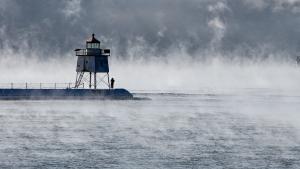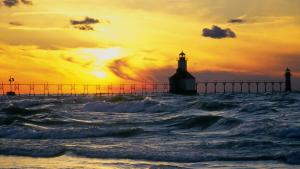Tool
Great Lakes Coastal Resilience Planning Guide
This guidebook shows how Great Lakes counties and municipalities can use science-based information to address coastal hazards and incorporate concerns for climate change into local planning efforts. The planning guide features the following resources:
- Local stories
- Case studies
- Maps, Data, and Tools
- People and Organizations
- Events and Funding
- Climate and Environment
- Library of relevant publications
Details
Sources
American Planning Association
Association of State Floodplain Managers
Coastal States Organization
National Association of Counties
National States Geographic Information Council
NOAA Great Lakes Environmental Research Laboratory
NOAA Office for Costal Management Digital Coast
The Nature Conservancy
University of Wisconsin Extension
Wisconsin Sea Grant





